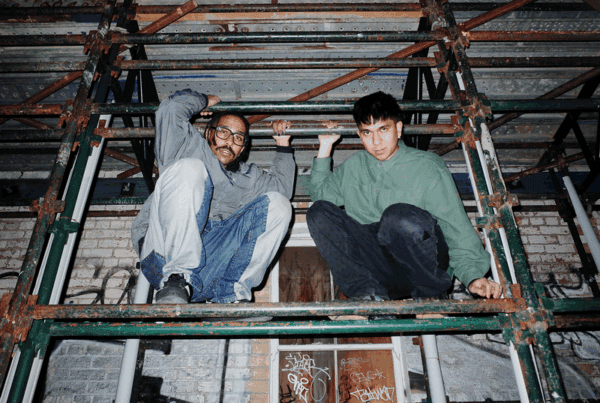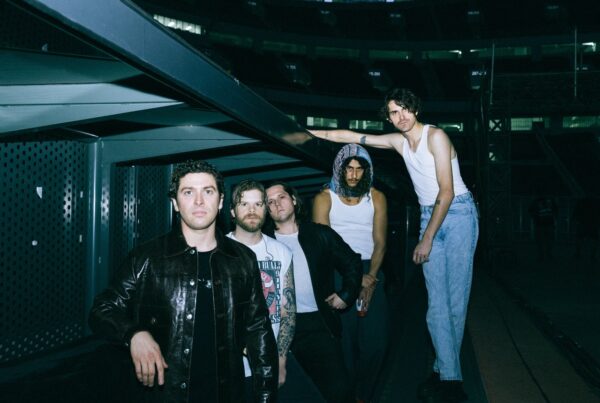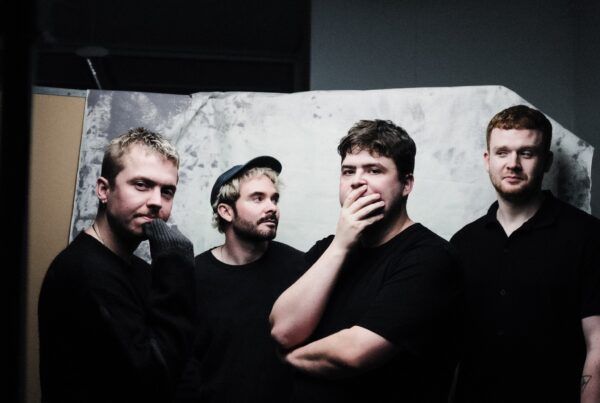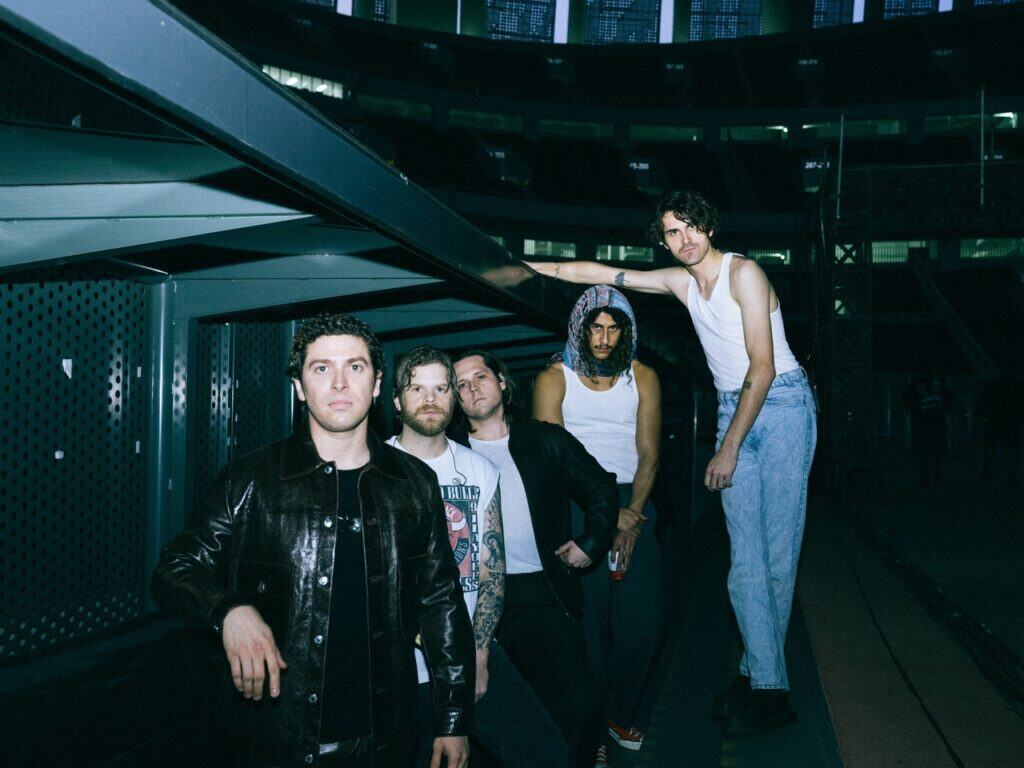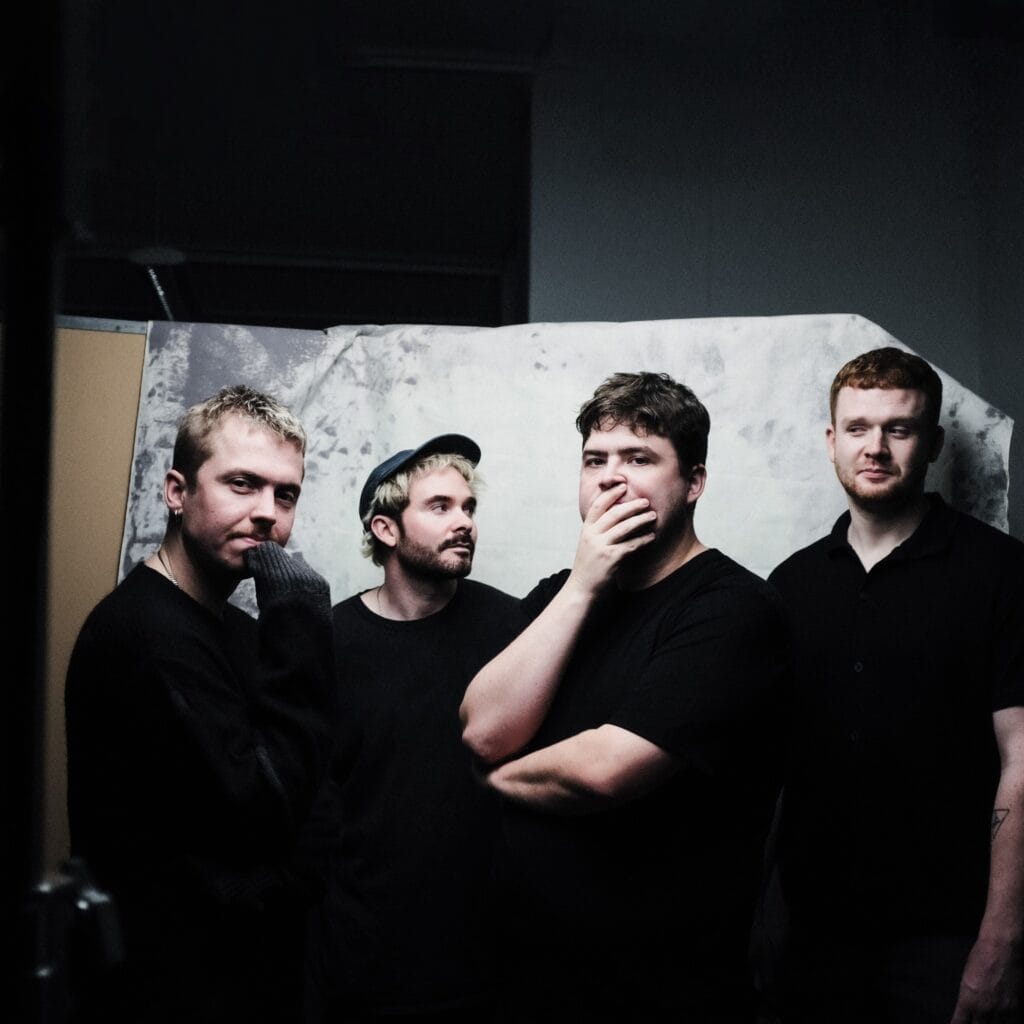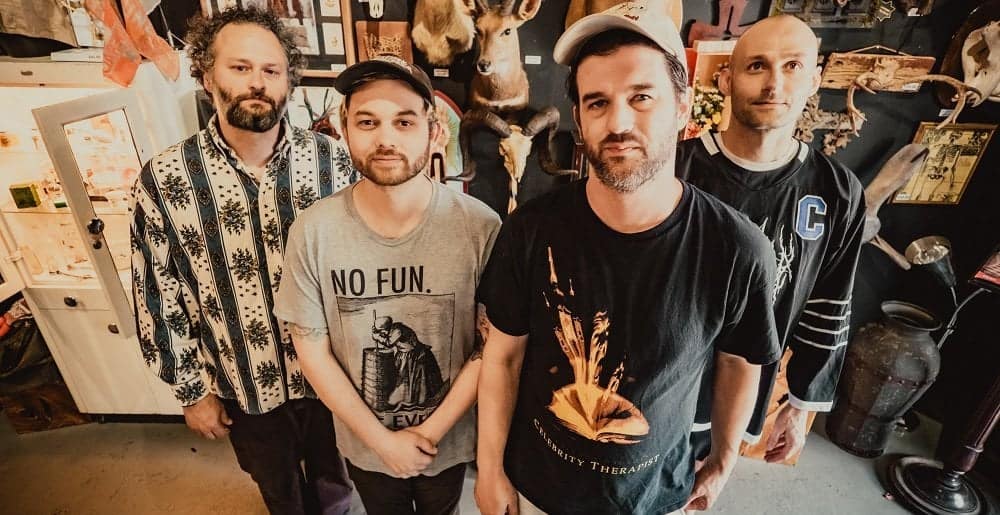Recently, we had the opportunity to catch up with We Got This Far. The two-piece made up of Jason Silva and Ollie Marsh are without question one of the most innovative acts we have discovered this year. Following the release of their latest aldum, ‘Blunt Force Volume’ in Europe, we spoke with the band about their sound, the industry and the future of Industrial music.
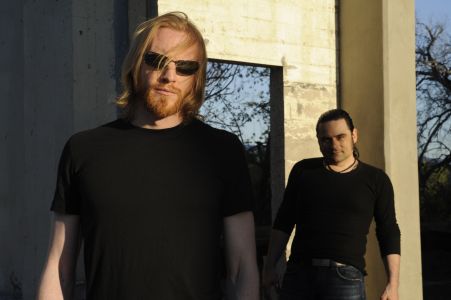
“We introduce elements that most people in electronic music wouldn’t touch”
S] Can you tell us about your plans for new ideas and how we will see a progression from ‘Blunt Force Volume’
J] Well although we are developing the direction for the next core album, we really need to take the sentiment of ‘BFV’ as far as we can and just exhaust it. Right now we are giving everything to ‘BFV’, because it really is where we are, and we even plan to record a supplemental live album to expand on it. It’s just so vital to let everything it is about bleed out so that it is truly finished, before we even touch that next blank canvas we shouldn’t be left with things left unsaid. If we did things right, we should be able to look back and know that those thoughts are expressed and be ready to move forward and give those who take the time to listen something valuable through a new and unique body of work.
That being said, the reservoir to base the next album on is building, a lot of it will be rooted on past experience and, a lot of it will be drawn from life that is being lived right now. The experiences, the people, the interaction that happen now will no doubt be internal organs of the next core album.
S] Are you planning on expanding WGTF visually this year – will there be a video and what ideas do you have?
J] It’s funny, a lot of the approach to things has been to try to just do what is true and to avoid what ( for us ) would be preconceived or fake. So we’re probably not going to be doing a choreographed dance routine on the seats of canyon-jumping motorcycles with a fighter-jet flyover any time soon … it just isn’t who we are. But, we promise to pour every ounce of who we are out in everything we do, and none of it will be insincere.
If we can capture a real experience of a live show, that would be what I would like to get across, not some glorified MTV video or commercial but, capturing a real night, really being there. That would be a success to me, that’s the direction. On the other hand if Steven Soderburg comes along and insists on bankrolling a three hour visual extravaganza then everything I said is out the window and bring on the fighter-jets !
S] What are your biggest plans for the rest of this year?
J] The most significant step of 2009 was the release of ‘BFV’, but it is really more of a process than a single event. Right now we are enjoying the warmth we are getting from Europe while preparing for the North American release in October. We also are deep into design of a live album to expand on ‘BFV’, along with tour scheduling and some work we want to get done for other artists like Chemlab.
O] Right about the time you’re reading this, a very cool online game is going to be released called ‘Vector Conflict: The Siege‘, which features some music from the album. I’m very excited to see what sort of feedback and new fans we gain from that, since the game will have some huge exposure. Keep an eye on our site for more details.
S] How do you think as people personally through the music you make as We Got This Far?
J] I’d like to think we try to be honest enough with ourselves and others through the music to not be afraid of saying how hard that can be. Embracing the sadness and hurt, owning it along with all it’s vulnerabilities makes every person who does own the hardships stronger. None of us are any less valuable for possessing doubt, or loss, or giving up on a decaying part of our lives, those are parts of being human. Admitting that, and reaching out to others through that, saying, ‘It’s ok to be hurt, or doubtful, or to stop trying’ it doesn’t lessen you, is to embrace others rather than judge them.
S] You tell us about your individual inspiration when writing the tracks, ‘Sedona’ and ‘Someone Somewhere’ – there is a wealth of emotion within these tracks but they are different in pace, tone and content?
J] Thanks! Ollie really had the spark for ‘Sedona‘, and he can probably best describe the inspiration. When he presented it to me it was already a beautifully inspired piece, even from its earliest stage. We expanded on it, and we added to it but yeah, it was one of the most self-guiding tracks.
O] ‘Sedona’ was actually written in a little desert town in Arizona with the same name. I was at a wedding, and I had a lot of time to myself that I spent it thinking about how marriages are more often than not, the beginning of the end. It’s a depressing concept, but unfortunately a very real one. The mood and lyrical content emerged out of that.
J] ‘Someone Somewhere’ is remix of ‘Cave In’ actually, but it is meant to reflect the truth that no matter how catastrophic an ending may be – a new beginning will come from it. It really is meant to work in concert with ‘So This Is Doom’, which is the absolute ending, the devastation and finality of letting go of something gripped tightly for so long that the fingers are locked into place.
S] What fuels your passion for dark electronic music now in 2009?
O] Not to be overly negative, but I think things have been a little stagnant in the area of dark electronic or industrial music for a while now. We had a good spell with bands like Skinny Puppy, NIN, Ministry, Front Line Assembly, VNV Nation and more, but it feels like things have slowly been settling, and most of what comes out these days, although sometimes excellent and inspiring music, is just fit to a template of some bigger band that came before. Jason and I are passionate about trying to do something new and honest. We get a big kick out of trying to introduce elements that most people making electronic music wouldn’t think to touch, like predominant bass guitar parts, acoustic guitars and other things.
S] With a dedicated following in Europe and distribution, what are you most looking forward to about touring in the UK and the rest of Europe?
J] The people. Man that’s what it really is about. It’s funny, you write an album and you put it out into the world where people are privy to your thoughts and emotion, and they build a relationship with you. People you have never met, know parts of you, then you meet them and from that point on the relationship can be built through dialogue rather than monologue and that is really cool. It can be profound when someone really connects with you, and they understand you through your work but you have never shared a conversation.
O] Just moving around Europe in general is an exciting experience. You can see so many different countries and cultures with very little actual traveling involved. I can’t wait to see how the live show is received in places other than the US.
J] Oh, and the UK has the coolest accent, awesome street markets and some amazing Lebanese food.
S] How would you like your music to speak to your audience as many people say that different tracks carry great emotional significance?
O] Different bands have different attitudes when it comes to the way they let their music speak to others. We aren’t really trying to communicate any specific messages like some artists try and do. We’re just telling our own stories and hoping that people can find some common ground in them. The directness of our material varies as well – with some tunes the story and attitude behind the song is made pretty clear, in ‘Like Dying’ for example, but in other songs the lyrics are more abstract, and people have the freedom to interpret them in a way that they connect with the most.
S] Jason has said previously that he thinks some Industrial bands have trouble getting away from just their local market – can you tell us what you think the best way to reach a new audience as a darker act is?
J] It’s so true, it is a phenomenal time to be an artist, and as an independent artist you can reach more people on your own than at any other point in time. We create in a time of self-reliance, you no longer need an expensive studio, or musicians, or management, or even a record label but, what is lost in the wash of pure independence is that a team can be very valuable. Although not all studios, producers, labels, management or musicians are good partners…many of them can be. Industrial artists, I think more than most, tend to be incredibly independent people, they tend to work extremely hard to be self-reliant, but sadly that can be limiting. There are some amazingly talented artists out there, who write and produce some ground breaking music but unfortunately it just goes unnoticed without a record label, distribution or often times even physical copies.
S] If each of WGTF’s members could sit down with someone (any one) and play them ‘Blunt Force Volume’ who would you pick and why?
J] Sometimes I wonder, if I were to have children, when they are passing through their own lives would they be able to connect with any of the songs? Would it help them through? Would they be able to relate? Maybe. Who knows. I would like to think the material is an open letter from the perspective of life at this age, and if they were to relate to it they would be relating through a glimpse of the thoughts and feelings of someone who has grown away.
O] That’s a good question, and it has such different answers depending on what dimension of the album I think about. The engineer in me wants to play it to some mentors I had while working in the audio recording industry, the musician in me wants to play it for people like Trent Reznor or David Bowie and see what they think, and on a personal level I’d love to play it for some old friends and bandmates. I realise I haven’t answered you properly, but take it as a sign of a very well thought out question.
S] Can you tell us about the darkest moment in WGTF’s history and how you came through it?
O] I wish I had some story for you about one of us pulling the other from the depths of drug addiction, or a brave tale about how we survived three months in a XXX death camp, but the truth is we’re still a pretty young band, and although the road so far has been paved with much sweat, burnt out ears and bloodshot eyes, it has been a very positive and rewarding experience so far. I could probably fill your page with complaints about audio software that seems likes it’s designed to push people to suicide, or playing shows with no monitors and about two square foot to move around in, but these things are all part of being in a band and don’t do justice to the term dark moment.
S] Likewise, to finish – what about your defining moment together – can you describe that?
J] Our second show was at a nightclub in San Francisco called Annie’s Social Club we had reworked our entire live show, and it went over phenomenally well, the crowd violently flew into a pit during ‘Bludgeon‘ and was so into it throughout the entire show. Towards the end sweat was dripping down our soaked faces, my bass was bloody from gashing a finger open half way through. As we struck the final note we blew out a circuit breaker for practically the entire club. The only things that remained powered were a single light shining on Ollie and the guitar amp which was left feeding back. It was as if on cue, the crowd was so into it, thought it was orchestrated.
J] So much good took root from that show, and we were very embraced from that point on, it was a huge turning point to be so warmly embraced.
For more information visit the official MySpace and website.
Read our review here.
Watch a live video for ‘Mistep’ below:

